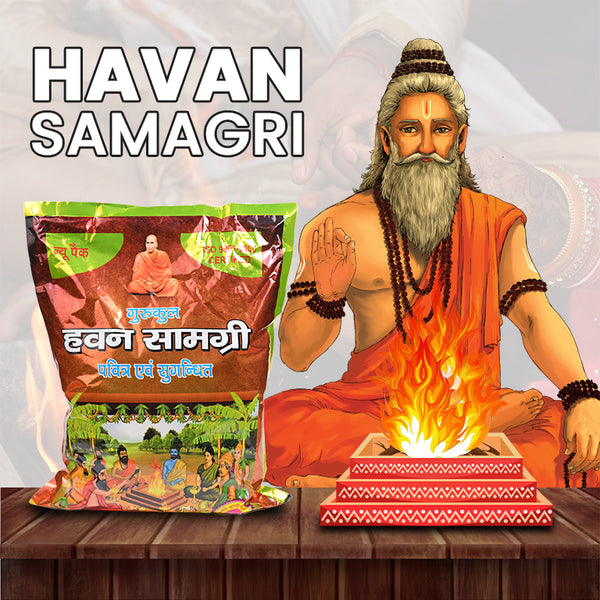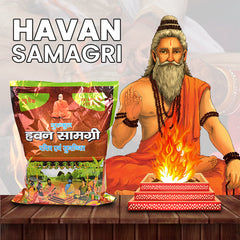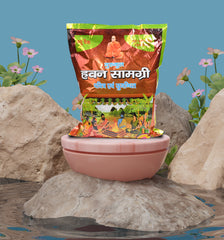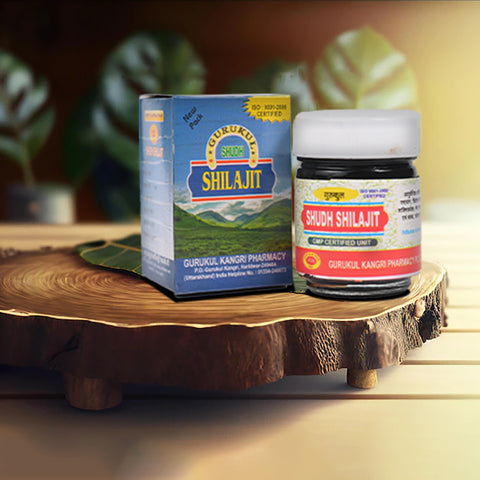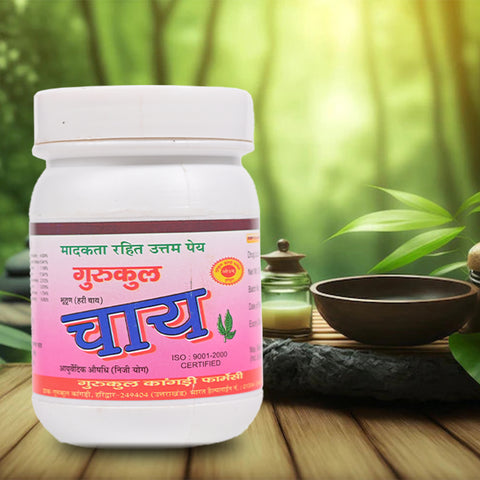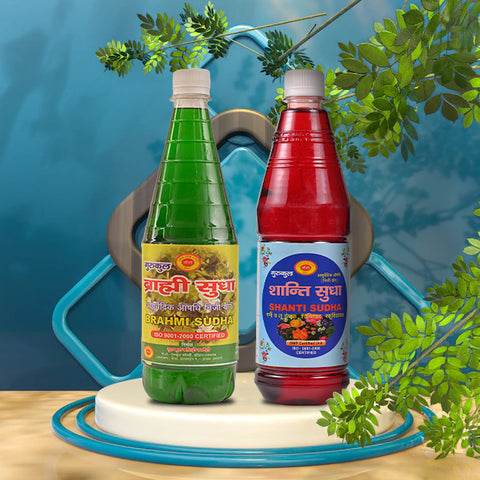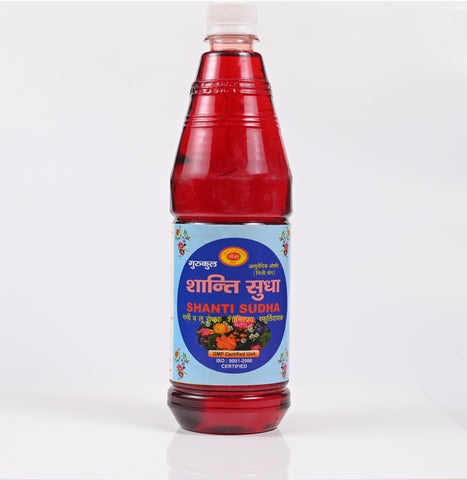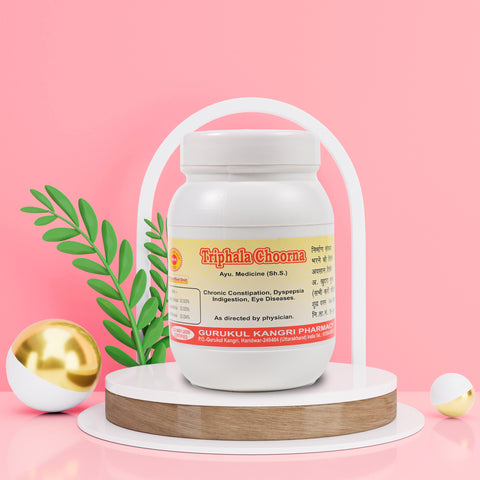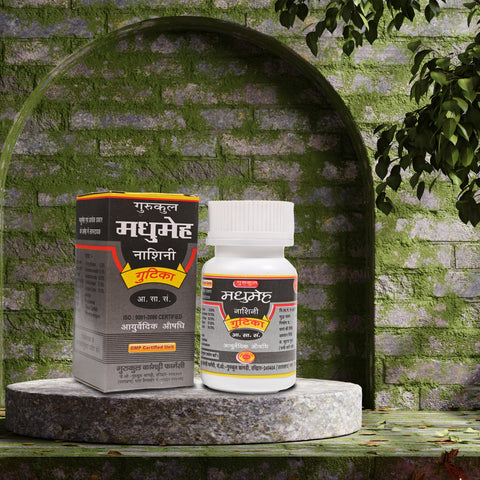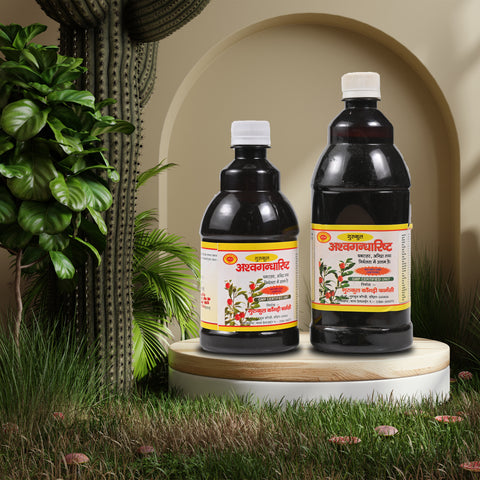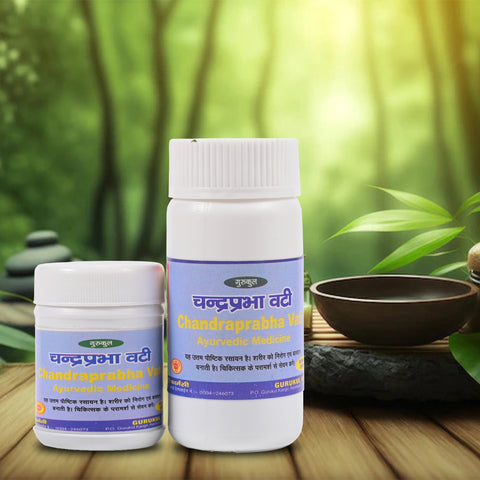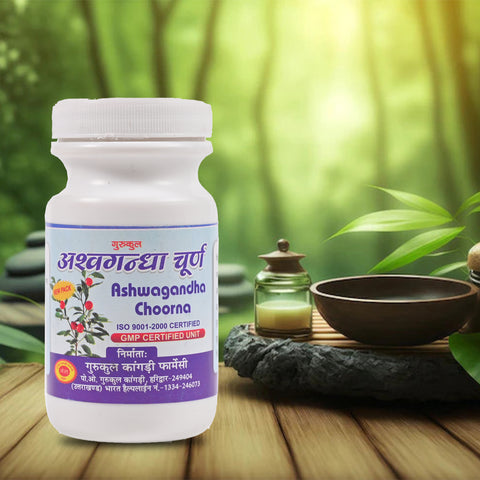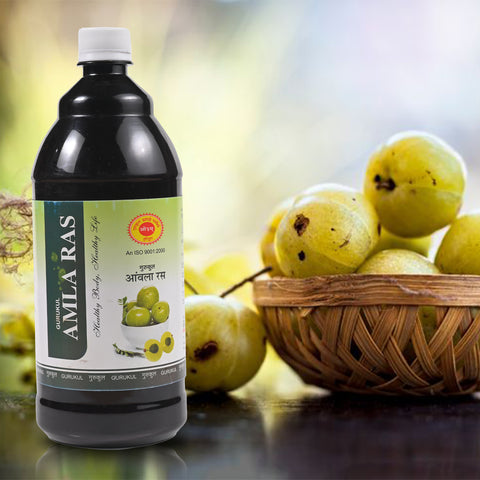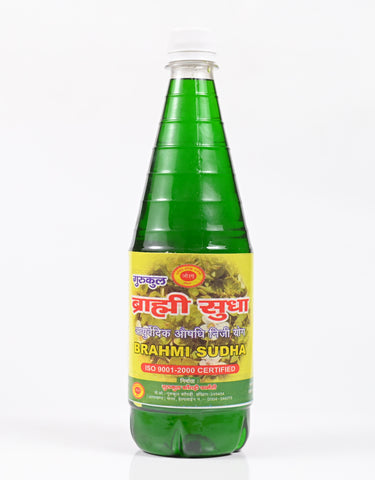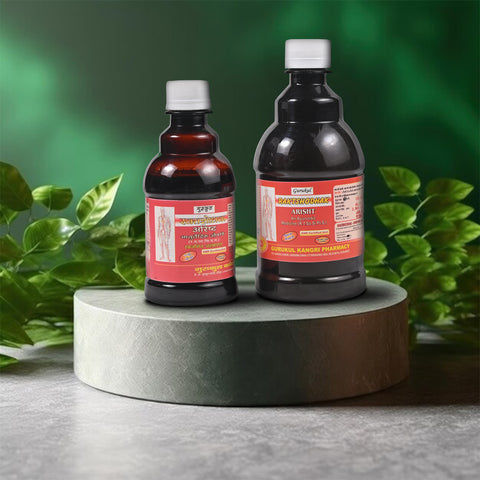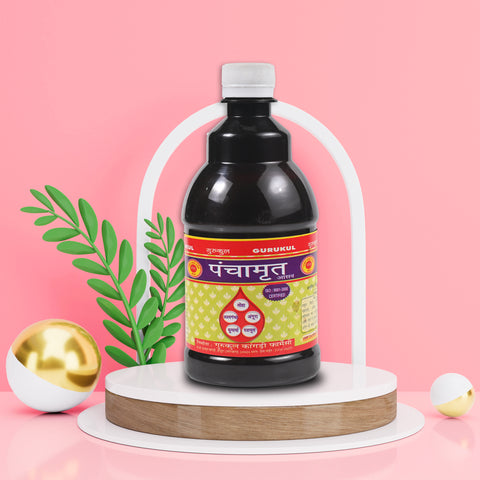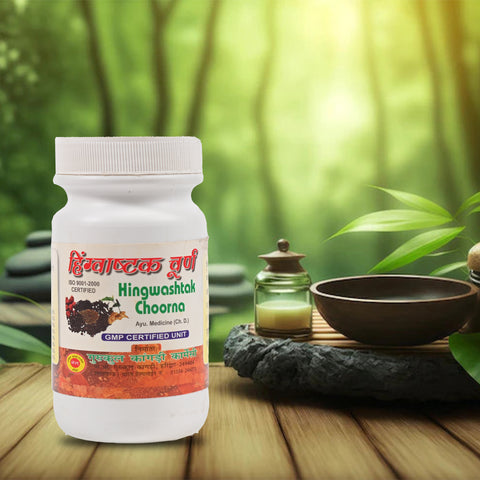Hawan Samagri
-
Get 10% off on orders above 699
Coupon code: COMBO10 -
Flat 10% off on your first purchase
Coupon code: AY10
No Harsh Chemicals
Secure Payment

Made in India
Natural & Ayurvedic
Havan Samagri, often referred to as Havan or Yagna materials, constitutes a blend of natural elements utilized in Hindu ceremonies, specifically during Havan or Yagna rituals. These customs play a vital role in Hinduism, involving the act of offering prayers, invoking deities, seeking blessings, and purifying the surroundings. The purity and authenticity of these natural ingredients are crucial, as they serve as offerings to the deities and gods, beseeching their blessings upon individuals, families, and society as a whole. Consequently, the meticulous selection and preparation of Havan Samagri hold immense significance in these sacred practices.
Name of Manufacturer: Gurukul Kangri
Manufactured By: Gurukul Kangri Pharmacy, Haridwar- 249404
Marketed By: The Vedya: Shakti Sansthan, Yogendra Pal Shastri Marg, Singhdwar, Kankhal, Haridwar, Uttarakhand (249404) India.
Country of Origin: India
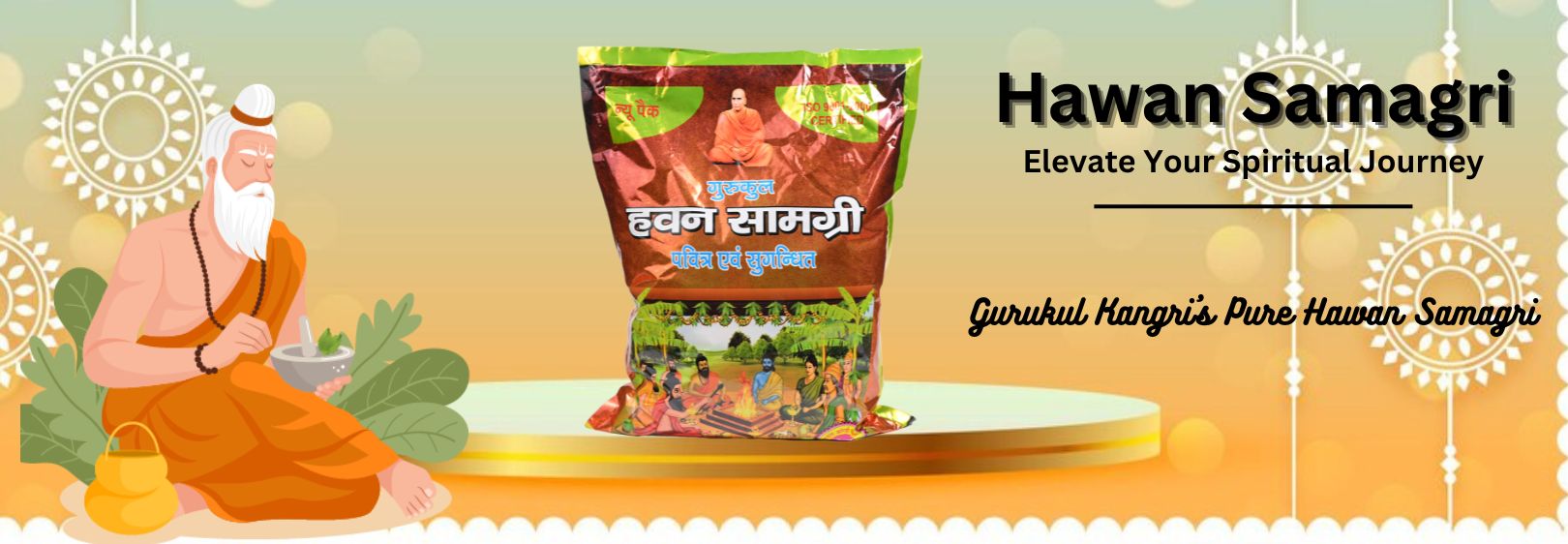
- Samidha (Sacred Wood): Specific types of wood, such as mango wood or sandalwood, are used as fuel for the Havan fire. Mango wood is having purifying properties, while sandalwood is known for its fragrance.
- Black Sesame Seeds (Til): Black sesame seeds are used as a symbol of abundance and good fortune in Hindu rituals.
- Jo (Barley): Barley is a common grain used in Havan Samagri, symbolizing sustenance and prosperity.
- Ankara or Crown Flower (Calotropis gigantea): Also known as Akanda or Madar, it is used to purify the environment and is offered in hawans for its auspicious properties.
- Palaash: The Flame-of-the-Forest tree, its leaves and flowers are used in hawans for their vibrant color and symbolism of prosperity and purity.
- Apaamarg (Achyranthes aspera): This plant is associated with Lord Shiva and is believed to have protective and purifying qualities when used in hawans.
- Rose Petals: Rose petals are offered as a symbol of devotion and beauty.
- Loban: Loban, or benzoin resin, is used for its aromatic and purifying properties. So used to remove the negativity and cleanse the surroundings.
- Nagkesar: Nagkesar is a type of fragrant flower, and its inclusion adds to the aroma of the Havan.
- Tagar: Tagar is a fragrant flower known for its association with deities and spirituality.
- Agarwood (Agar): Agarwood is used for its aromatic properties and is highly valued in incense making.
- Red Sandalwood Powder: Red sandalwood is used for its color and fragrance and purifying qualities in Hindu ceremonies.
- Herbs and Medicinal Plants: Various herbs and medicinal plants like Guggal, tulsi (holy basil), neem leaves, Clove, Phoolmakhane and brahmi are included in Havan Samagri. These herbs are believed to have spiritual and medicinal properties.
- Purification: The primary purpose of Hawan Samagri is to purify the environment and the participants. The fire in the hawan is considered a purifying agent, and the smoke generated from the burning ingredients is believed to cleanse the surroundings of negative energy and impurities.
- Spiritual Benefits: Hawans are performed to establish a spiritual connection with the divine as it helps clean the soul and bring inner peace. The offerings made with Hawan Samagri are seen as a way to invoke the presence and blessings of deities and higher powers.
- Alleviating Stress and Enhancing Immune Function: The act of participating in a hawan can be spiritually calming and stress-relieving. The rhythmic chanting, the aroma of the burning ingredients, and the meditative atmosphere can help reduce stress and anxiety and helps in improving immunity.
- Environmental Cleansing: Natural ingredients in Hawan Samagri, like certain herbs and leaves, release natural oils and compounds when burned, which can have insect-repelling and air-purifying effects in the immediate vicinity.
- Traditional & Cultural Significance: Hawans are an integral part of Hindu culture and tradition. They are performed on various occasions, such as weddings, housewarming ceremonies, and religious festivals and other many rituals, helping to preserve and pass down cultural practices.
- Offerings and Gratitude: The offerings made in hawans serve as a symbol of gratitude and devotion to the divine. They are seen as a way to give back and seek blessings for one's well-being and the well-being of the community.
- Harmonizing Energy: Hawans are believed to balance and harmonize the energy in the environment, fostering a positive and conducive atmosphere for personal and spiritual growth.
- Aromatherapy: The fragrant smoke from Hawan Samagri is considered a form of natural aromatherapy. The scents of the burning ingredients can have a calming and uplifting effect on those present.
At The VEDYA we are dedicated to providing authentic Ayurvedic offerings, with our flagship product being Gurukul Kangri’s Hawan Samagri Our products draw upon the profound wisdom of Ayurveda, which has been honed over more than a century. We have meticulously crafted holistic Ayurvedic and organic formulations and combinations, rooted in Ayurvedic principles.
It is suitable for use by individuals of all ages, including children, men, and women


